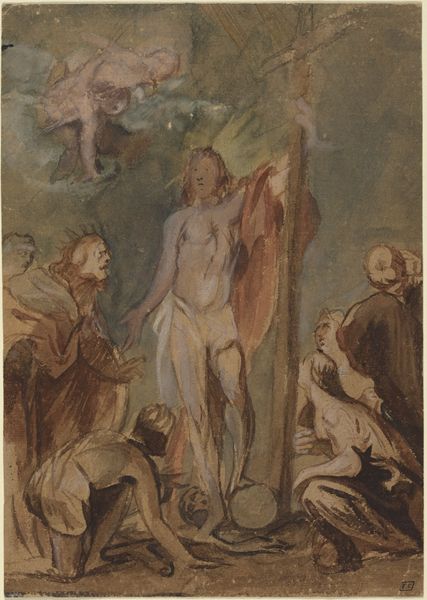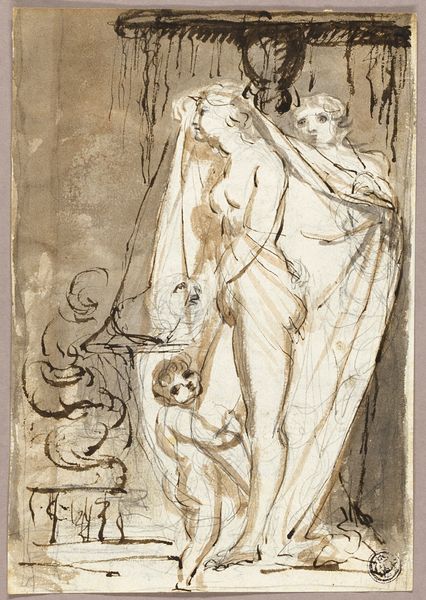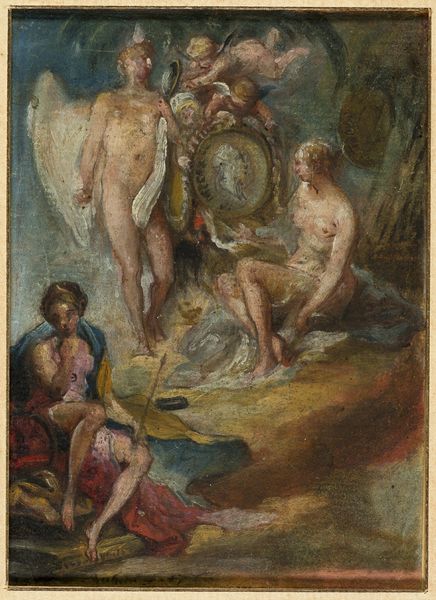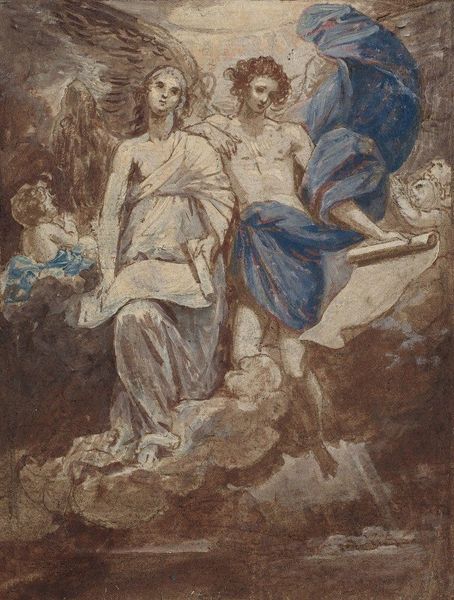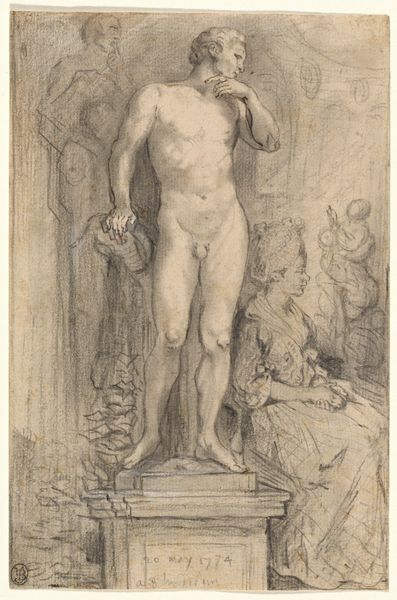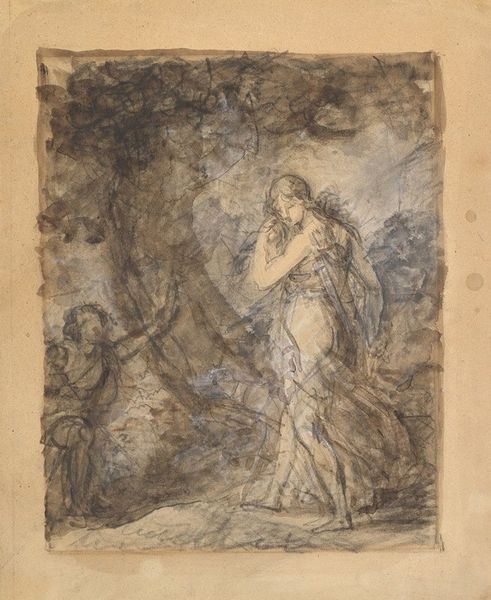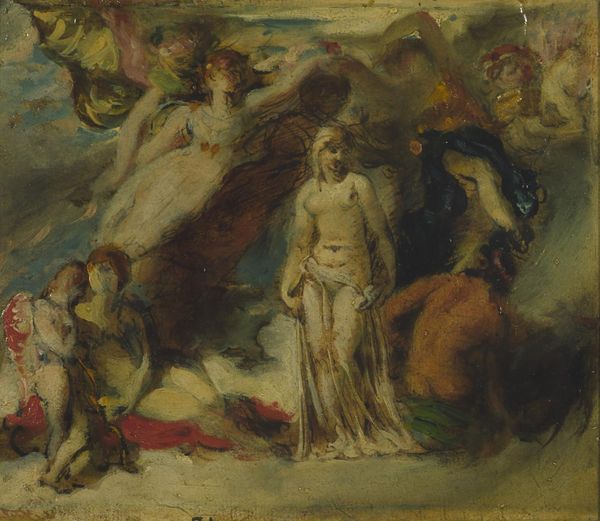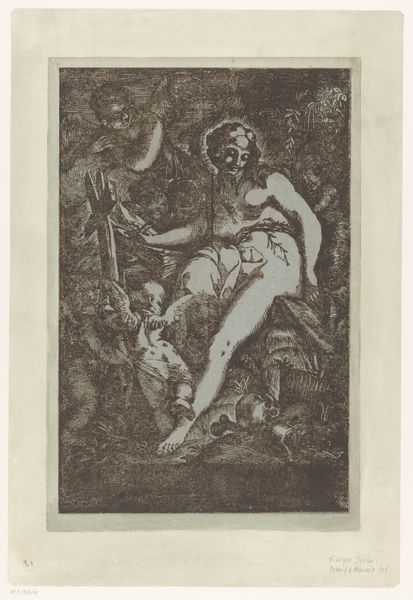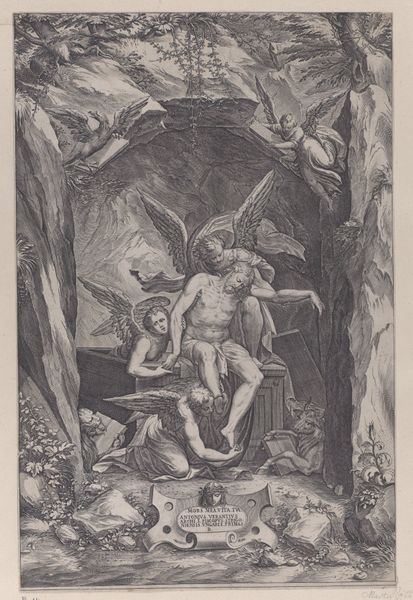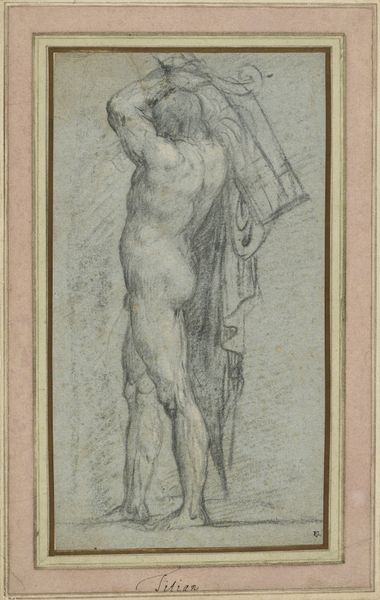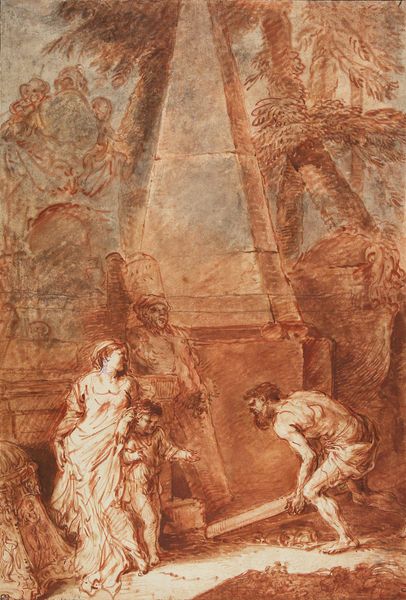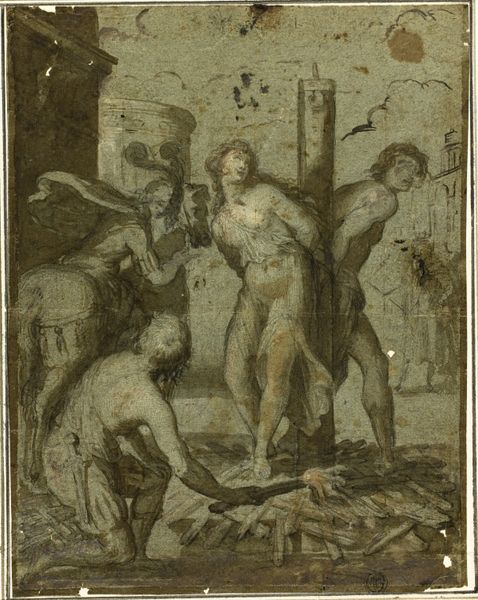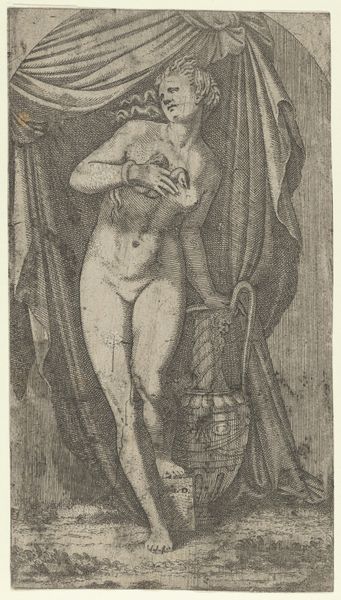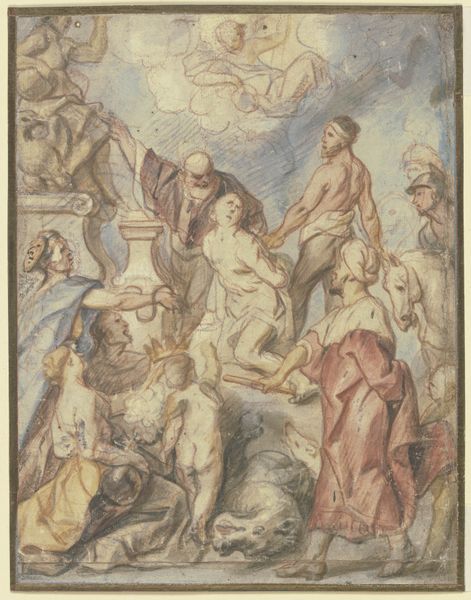
Dimensions: height 198 mm, width 130 mm
Copyright: Rijks Museum: Open Domain
This is Gabriel de Saint-Aubin's Allegorie op de dood van Voltaire, made with pen, black and brown ink, brush, watercolor, and graphite. It reflects the complex intersection of Enlightenment ideals, artistic expression, and societal attitudes toward death and legacy. Voltaire, the celebrated Enlightenment writer and philosopher, was a controversial figure who challenged religious and political authority. His death prompted a range of reactions, from mourning to condemnation, deeply felt by many. Here, Saint-Aubin grapples with representing Voltaire's death, not as a physical event, but as an allegorical narrative. We see Death, likely depicted as a woman given her bare breasts, pouring water over a sarcophagus. It is a moment filled with emotion and symbolism. Saint-Aubin develops an alternative narrative, using classical allegory to express something deeply personal about the impact of Voltaire's death on the cultural landscape of his time. Through this lens, the artwork becomes a profound meditation on mortality, memory, and the enduring power of ideas.
Comments
No comments
Be the first to comment and join the conversation on the ultimate creative platform.
